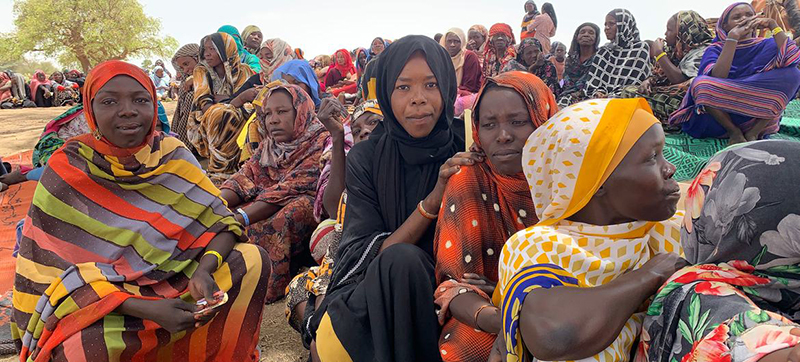 Sudan
Sudan The displacement crisis prompted by ongoing conflict in Sudan continues unabated with nearly six million people forced out of their homes and women and children making up nearly nine in 10 of those uprooted, the UN refugee agency (UNHCR) said on Wednesday.
“This is one of the largest protection crises that we are faced with today,” said Mamadou Dian Balde, UNHCR’s Regional Director for the East and Horn of Africa and Great Lakes.
“Inside Sudan itself there are a lot of people in urban settings that are affected equally and who do not have the resources to leave.”
High-level probe
In a related development, the UN Human Rights Council on Wednesday voted to set up a high-level probe “to investigate and establish the facts, circumstances and root causes of all alleged human rights violations” in Sudan.
In accordance with the resolution, the Independent International Fact-Finding Mission for Sudan is mandated to investigate violations of international humanitarian law, including those committed against refugees, and related crimes caused by the ongoing conflict.
Cease hostilities
In an appeal for a cessation of hostilities, the UNHCR official urged Sudan’s opposing militaries “to have a peace process that will help our brothers and sisters who have been obliged to flee their countries to go back to their countries”.
As a result of the conflict that erupted in mid-April between the Sudanese Armed Forces (SAF) and the Rapid Support Forces (RSF) and other armed groups in mid-April, the UN agency described how families had faced harrowing journeys and become separated while on the move, amid increasing reports of gender-based violence. Malnourishment among children is now described as a major crisis, along with disease outbreaks.
“I have seen and I have witnessed the level of human rights violations that have happened within Sudan so that what we hear from people who have crossed the borders is really heartbreaking and that’s the protection crisis that we are faced with and it has been ongoing for the past six months,” Mr. Balde said.
Regional ramifications
The regional ramifications of the Sudanese emergency are deep, particularly in neighbouring Chad and the Central African Republic (CAR). Both nations are grappling with the influx of refugees fleeing the devastating conflict in Sudan, bringing with them stories of despair, loss, and continued vulnerability.
“In my long career as a humanitarian worker what I have seen in Chad with this new emergency with such a rapid and vast displacement of people is the first time,” said Abdouraouf Gnon Konde, UNHCR’s Regional Director for West and Central Africa.
There are over 420,000 new refugees in Chad, 300,000 in Egypt, and about 19,000 in CAR.
Situation in Chad
To put this in perspective, “Chad has hosted more refugees in these mere five months than it has in the past 20 years becoming now undeniably the epicentre of this crisis,” Mr. Konde said.
By the end of 2023, the number of refugees in Chad could number 600,000, according to UNHCR estimates.
In response to the emergency there, the UN agency has relocated 42 per cent of refugees away from high-risk border areas, with a focus on protecting the high percentage of vulnerable women and children.
Support Our Journalism
We cannot do without you.. your contribution supports unbiased journalism
IBNS is not driven by any ism- not wokeism, not racism, not skewed secularism, not hyper right-wing or left liberal ideals, nor by any hardline religious beliefs or hyper nationalism. We want to serve you good old objective news, as they are. We do not judge or preach. We let people decide for themselves. We only try to present factual and well-sourced news.







